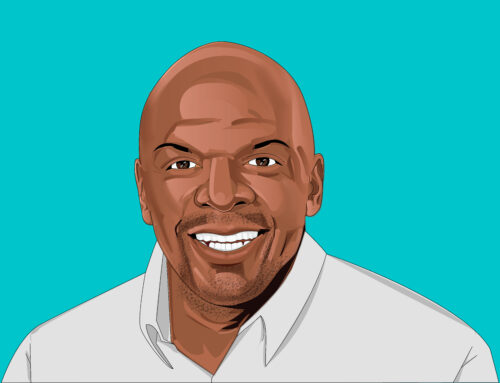Join us for another episode in our Talent Chronicles series with Serguei Zaychenko, who emphasizes the importance of Executive Search as it pertains to the growth of a company. He also dives into skills and qualities to be looking for when heading up an Executive Search.
JCSI: Hi everybody, this is Bergin Sullivan here with JCSI. I’m here today with Serguei Zaychenko joining us for another interview in our Talent Chronicle Series. Thanks so much for being here with us today.
Serguei: It’s a pleasure, Bergin.
JCSI: So, you’re a highly accomplished executive search professional with experience in several different industries, most recently in the Financial Services and the Media and Internet sectors. Could you give us just a quick background of how you got into Talent Acquisition?
Serguei: Oh, it’s actually an interesting story, almost serendipitously. I was working at a small Financial Analytics company on Wall Street, I like to call it the mini Bloomberg, of course, not that brand. And one day I got a call from a headhunter and the headhunter told me that a Premier Executive Search Firm, Russell Reynolds Associates, was looking for someone with my type of background and qualifications. And at that point in time, I didn’t really have any idea about Executive Search, Executive Recruiting, or the corporate world but it was an interesting offer.
I agreed, and they hired me. I quickly realized that in the position of an Analytic with a search firm, you are essentially in the middle office and the action, and quite honestly the money, is in the front office. So, I put two and two together and decided that I wanted to be involved with recruiting actual searches.
I then joined a small boutique search firm where I started screening candidates almost immediately interviewing them. And that’s where I cut my teeth so to say on assessment, evaluation, and candidate presentations. The rest is kind of history. I’ve been lucky throughout my career to have been involved with some top-notch corporate brands, both in Financial Services, like FinTech, as well as in Media, Internet, and E-commerce. I’ve been on the agency side for about half of my career and the other half in-house as a corporate recruiter.
JCSI: Okay. And in terms of that experience, what are some differences that you see both on the agency and the in-house side in hiring great leaders now versus 15 years ago or back when you were first starting your career?
Serguei: Well, let me parse this question into two…
So, to start, the difference between being on the agency side or search side and in-house. I like to call it being a servant of many masters.
When you’re on the agency side, i.e., you’re working with multiple clients at any given time.
Whereas when you are in-house, you have essentially one master, your own company that you recruit for.
When it comes to Executive Search and Talent Acquisition (and again to qualify throughout my career, I’ve been involved or focused on recruiting for C-level positions, CEOs, COOs, general managers, as well as their direct reports, and maybe one level down). So, that’s sort of the top of the house. And interestingly, the approach and the criteria for finding great candidates haven’t really changed that much in the past 15-20 years that I’ve been in the industry. However, what has changed is the type of qualities that back in the day were almost secondary to the candidate. The best candidate profiles now have become almost paramount. And I’m not necessarily talking about technical skills and experience, that is given.
So, you’re looking for a candidate who has the industry experience, and the technical skillset. But what has become extraordinarily important these days in the context of the social-political change, and the market change that is happening. And of course, the pandemic and the massive impact of this crisis on the society.
Soft qualities, personal attributes, and leadership characteristics have become the driver of the selection and ultimately, the recruitment of Senior Executives. There may be many geniuses who dropped out of college, started the great business, and grew it to become an iconic brand or two or three and we all know who those leaders are. But, these are more of an exception. When it comes to hiring a Senior Executive Leader, the CEO of a company, or any other C-level position, typically, companies are looking for a combination of leadership, intellectual qualities, as well as emotional intelligence, EQ.
There are lots of clichés here and they’re still true even today when I’m looking at an executive, and I’m trying to understand how would they fit my client, the company that I represent? Will they be a long-term hire? Will they be a successful hire? What’s in it for them? Will they benefit from this match, from this alliance or marriage?
So, all of these factors come into the equation when you look at Senior Executives. It’s probably more straightforward, a little bit more black and white, hiring for more junior positions with less experience, with less scope of responsibility. But when it comes to running a business, growing a business, scaling, innovating, creating new products, winning new markets, acquiring new customer segments and demographics, it almost requires the type of executive, and I’m not afraid to use this word, a Renaissance Man.
I used to be a big fan of another concept 10, 15 years ago, which was the Best Athlete, and let me compare the two:
The Best Athlete
“The Best Athlete is someone who just isn’t sports. They are absolutely fantastic in what they do and they’re so innately smart and capable that they can learn a new skill, a new industry, or a new career path fairly easily.
Because they are agile because they’re flexible because they are intellectually adept…that’s the Best Athlete. And some of the most successful hires that I’ve made in my career were of those types.”
The Renaissance Man
“This is someone who has a different profile, it’s a broad scope of interests from philosophy to mathematics. And I’m simplifying, of course, here a little bit, but just to give you a flavor of what the breadth of experiences and interests of a Renaissance Man is. But I do believe that in today’s world, in today’s Talent Acquisition for senior-level positions, a renaissance man can be a lot more successful.”
In fact, it is almost required to be there to intellectually get their arms, get their head around the business, and the challenges, to understand the connections that may not be obvious to other people, to connect the dots. To have that foresight based on the comprehensive nature and have the experience and understanding of many facets of life and human nature. And ultimately be able to come up with creative solutions that will be different, that will differentiate the business from the competition. It is especially important today when technology has become such a huge driver.
Everything is technology, whenever you look at it. The pandemic actually has accelerated, in many cases, the adoption of technology when we’re were talking about, for example, Cloud Computing. A few years ago, Cloud Computing was more of an esoteric concept that a limited number of companies were exposed to or aware of or willing to get involved with.
But with the pandemic, everyone suddenly realized that we are now moving more and more towards the digitization. The cloud is something that provides information security and protection, easy access, more advanced, more sophisticated data management. So, that’s just one example. And obviously, you and I are aware of many, many examples of how technology is impacting our lives, whether it’s professional lives, personal lives, social interactions. So, understanding of technology is important.
But, in my humble opinion, for a Renaissance Man, it is equally important to have a philosophical perspective, a perspective on how the population trends and demographic trends are impacting the talent markets. And obviously here we are dealing with a combination of millennials in the market but also a more mature population, just choosing my words carefully here, the baby boomers, you know, we’re still staying in the market and continuing to be in the workforce.
So, all these convergence of these factors and the need or the…I would even say the requirement of having this broader world outlook, a Renaissance Man outlook is what, in my opinion, would drive Executive Talent Search and Talent Acquisition going forward.
JCSI: All right, and going into technological advances and how they’re changing pretty much everything, and they’re changing every day, what type of technological advances have impacted the Executive Search Process and how have you seen that kind of evolve?
Serguei: Technology has impacted executives to search, probably a bit less than more general or higher volume staffing, where you have a lot more automation of processes. Additionally, the application software forms that allow employers to process massive amounts of applications, schedule hundreds if not thousands of interviews, interview online or through video. There’s a ton of companies out there who have come up with technology solutions for high volume hiring.
With Executive Search, it is still a lot more of touch, more of a human connection. However, I can envision some of the aspects of candidate assessment being automated and being turning into something that I would call a combination of Machine Learning and Artificial Intelligence and let me expand a little bit on that.
So, imagine a scenario where a Senior Executive is being interviewed by the company board. And of course, after multiple interviews in-person with the board members, they would like to test his ability to problem solve.
For that, there could be a program or software which includes simulated situations or scenarios, business cases that can be presented to the candidate. And while as the candidate is giving their answers to questions or solving those business cases, the robotics, so the avatar behind this program, is learning about the individual’s approach, thinking, tweaking, or adjusting those scenarios on the go. So, they are being presented in a new way with a new challenge.
It’s sort of like you start with one business case and as you are solving it, the machine behind it, the robot, is throwing additional challenges, some extra “what if” scenarios at you. It can take a couple of hours, the whole exercise, but it does put the candidate under pressure. It pushes them to the limit of their ability to think on their feet, to quickly react to unexpected changes in the scenario, which in real life it probably is not going to be possible at this point if you have just human interaction.
The machines can learn faster, they can come up with a more diverse range of scenarios. And the whole concept of integrating technology with the human process, or human touch, I think will be what will determine the outcome of the evaluation in the future.
JCSI: Okay, sure. So kind of a mix of both human interaction and technological?
Serguei: Correct.
JCSI: Going into some skills and qualities that you look for in a candidate, what would you say are some qualities that make a candidate a “good candidate” in terms of leadership skills? And once you identify those candidates, how do you go after them and try to bring them on/recruit them?
Serguei: It’s kind of a loaded question because everyone is looking for candidates that represent the absolute best kind of A-type. And there is a, by definition, a finite pool of these folks. So, how can you ensure that you can collect or pipeline enough candidates for your search?
Well, on the one hand, I’m a big believer in personal networks, building over time, connections with leaders, having multiple conversations, more informal than formal. Could be a cup of coffee, could be a quick phone call, could be a periodic update every six months or so. And as you build that personal connection, personal network, you’re understanding better the drivers. You’re also better understanding the quality that differentiates the candidates. And ultimately, you start building your own profile of a candidate based on your definition of the ideal candidate. So, this is a generalized statement.
To be more specific and to answer your question, and I’m gonna put aside the pure technical skill sets such as knowledge of the business, of the industry, experienced in mergers and acquisitions, or scaling the company. These are more of the hardcore skill set. The soft side of the equation becomes, again to my earlier point, almost predominant in assessing the candidate. Here I would single out three or four qualities that I try to focus on:
Their Ability to Think Strategically
“The cliché’s out of the box. I don’t necessarily like a cliché, but I do try to understand how the candidates react to unforeseen circumstances and what is their historic track record of coming with creative and innovative solutions.”
Emotional Intelligence
“When dealing with people at all levels, you have to have a good read and be able to connect and relate. Society has become so complex with the types of candidates, the type of workforces has become so multiple to the gig economy. The gig workers are now are a big part of it. We didn’t have that pronounced 10-15 years ago.
So, when you’re dealing with different demographics of the talent force, a good leader needs to understand what is motivating them, what is driving them, and what is important to them. They must create an environment and culture that will be responsive to those differentiated needs and wants of different talent populations.”
Personal Integrity
“This is just as important as it was 15-20 years ago, but quite honestly with the degree of transparency now and with the expectation of greater accountability you can run, run and keep running. Maybe the further you run, you’d be able to hide back then, but not anymore.
We now are dealing with social movements that are so focused on increasing transparency and providing more. They’re requiring or demanding more accountability which puts the corporate boards and the C-suites under a magnifying glass even more than before. So, what I’m looking for is an absolutely impeccable reputation and the sense of comfort that this individual is going to be true to their values and true to their word.
It’s not easy and it requires, again, a lot of personal interaction and also understanding the ecosystem that the individual has been a part of. Also learning of other people that they’ve interacted with throughout their career and connecting with them informally.
We all know that the references are only as good as the people who give them. And you hardly get negative references when you do the full referencing process. So, informal referencing, informal fact-checking, becomes even more important. And how you get to that, again, by building those personal networks of connections of people that know people and can vouch for them.
JCSI: Absolutely. You covered a lot there, I really appreciate all of that. Are there any other final thoughts that we didn’t get to touch upon or anything that you didn’t get to share that you would like to?
Serguei: Well, I wanted to thank you for the opportunity to join this initiative, the series, and to contribute my thoughts. Again, these are my personalized experiences and things that I’ve learned throughout my very rewarding career. I love Search, I love Talent Acquisition, I love the hunt, if you would, I’m a hunter at heart. I think that this is one of the best careers that one can, you know, wish for themselves because of its richness, because of its satisfaction.
Ultimately, I would like just to say that going forward…
Executive Search will continue to be a major contributor to the success of companies. And that the more investments they make into Executive Recruiters and Executive Search, the more effective the function will become ultimately.
Talent Chronicles is brought to you by JCSI, an innovative recruitment consultant that delivers better hires, faster, and at less cost.




